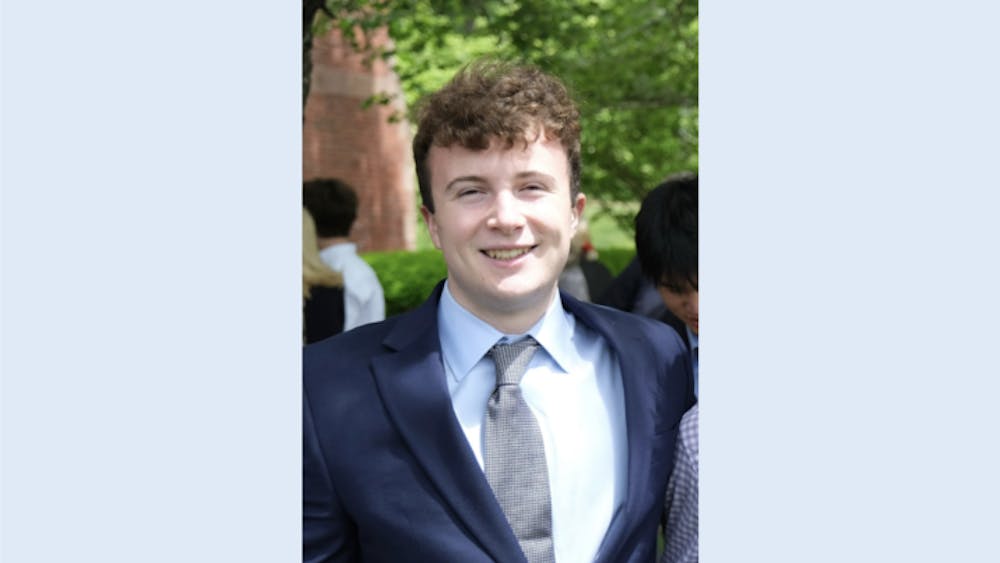
Cornell alumnus and trustee emeritus Joseph H. Holland ’78 M.A. ’79 argued that just as three centuries of Great Awakenings have shaped American social and political values, so too must the 21st century Great Awakening foster racial justice at a lecture Friday titled “Racial Justice, Revival and the Refounding of America.”
President Emeritus Frank Rhodes introduced Holland to the audience as a Cornell alumnus, trustee, ordained minister, attorney, civic leader and activist entrepreneur.
“He was an excellent student … but it was on the football field that a wider community got to know Joe,” he said. “In the year 1990, he was inducted in the Cornell Athletics Hall of Fame.”
Joseph H. Holland ’78 M.A. ’79 speaks Friday on racial politics and religion in America.Holland said his time at Cornell was one of great spiritual and intellectual growth. As a young Christian at Cornell, Holland said he noticed various connections between religion and reform in his history classes.
“Professor Larry Moore noted that the First Great Awakening — the 18th century religious revival [that] permeated the 13 colonies for decades thereafter — had a profound impact on the culture and politics of the era,” he said.
Holland said the founders of the American revolution were influenced by the First Great Awakening, as it was “easily translated… into a political awakening.”
“The values of spiritual freedom spawned constitutional principles — freedom of speech, of press of religion and inalienable rights of life and liberty,” he said. ”Perhaps most fundamental to the founders was the idea of human dignity and equality, which stems from the Christian precept that we are all created by God and in his image.”
According to Holland, the Second Great Awakening in Christianity began in the 19th century following the passage of the 13th Amendment.
“This constitutional watershed, along with the other post-war amendments and reconstructions, could be characterized as a 19th century refounding movement,” he said. “A season of hope to those clinging to deferred dreams, seemingly free to pursue the founding promises long denied [to] them.“
Holland said the 20th century also had a Third Great Awakening, which became the religious and cultural context for the Civil Rights Movement.
“The irony is that it was the faith of the old time religion — not the dogma of modern secularism — that inspired a mass movement to fulfill a promise of America’s founding,” he said. “The Christian character of the Civil Rights Movement climaxed with King’s ‘I have a dream’ speech … which had biblical roots.”
Holland said that if this pattern of religious awakenings and reform was to hold for the present era, a new Great Awakening is in order. He added that it would have to come from the roots itself, which would “spiritually uplift the prosperous and materially uplift the poor.”
“Perhaps an expanded educational quest to cultivate the whole student, the moral and intellectual, as well as the professional dimensions might yield fewer careerists but more visionaries,” he said.
The lecture was part of the Alan T. and Linda M. Beimfohr Lecture Series, which brings an intellectual to Cornell each semester to “address issues related to faith in a pluralistic society.”










